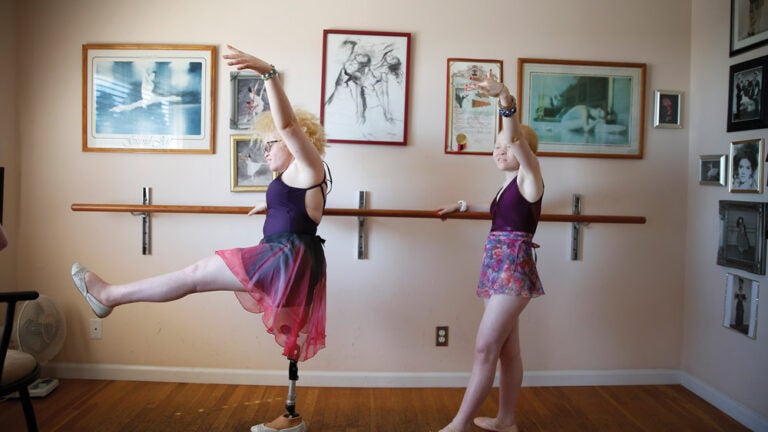
With the help of USC Gould students, the Mashamba sisters have found safety and a new home in California. | PHOTO BY BRIAN VAN DER BRUG/LOS ANGELES TIMES
USC Gould Students Help Bring Tanzanian Sisters to Safety
USC’s Immigration Clinic wins asylum for persecuted sisters born with albinism.
In Tanzania, being born with albinism— the lack of pigment in skin, hair and eyes—can be deadly. Six years ago, two young girls with the condition were brutally hunted down in their tiny African village by bounty trackers seeking the “magic” in their body parts. The sisters had always lived in fear, but on that night, their fears came true: Bibiana Mashamba, then 11, was attacked while sleeping and her right leg and two fingers were hacked off. Ten-year-old sister Tindi Mashamba was able to hide from the attackers.
I joined USC’s Immigration Clinic hoping to be an advocate for the people who need it most, and this case gave me that invaluable opportunity.
Amy Stern
Today, they’re safe in Los Angeles, thanks in part to USC Gould School of Law students.
The sisters traveled to L.A. after Bibiana Mashamba received an offer for treatment at the Orthopaedic Institute for Children through the advocacy of the African Millennium Foundation. After her recovery, though, the sisters feared what awaited them back home.
Then USC Gould’s Immigration Clinic stepped in to offer legal representation. “I joined USC’s Immigration Clinic hoping to be an advocate for the people who need it most, and this case gave me that invaluable opportunity,” says Amy Stern ’16, who worked on their case during her final year at USC Gould. She and Elena Babakhanyan, a second year law student, logged more than 150 pro bono hours. Stern put together evidence showing that the girls were targets from a young age due to Tanzania’s trade in albino parts. Babakhanyan prepared them for their asylum hearing in May.
“There are [Tanzanian] government officials who are willing to turn a blind eye to these attacks and killings. We had to prove this, otherwise the girls would have lost their cases,” says Niels Frenzen, director of the immigration clinic. The girls now attend high school in Ojai, California, and dream of going to law school or becoming doctors.
“We are enjoying a happy ending,” Bibiana Mashamba says.
Adds her sister: “The law has always interested me, and now I want to make sure these kinds of human rights abuses end.”
